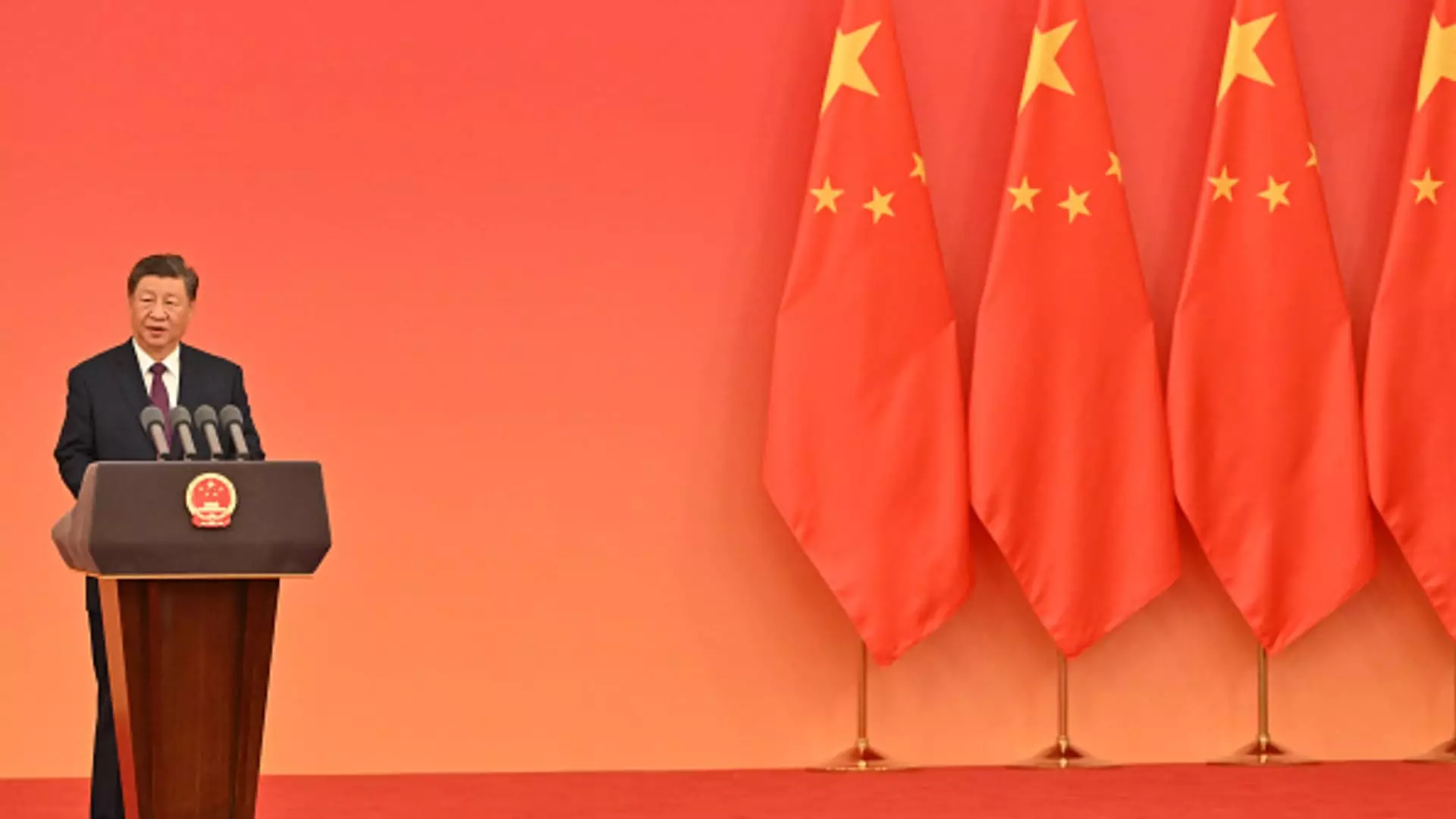In a recent public address, Chinese President Xi Jinping asserted that no challenge is insurmountable for China. His remarks, delivered during a reception celebrating the 75th anniversary of the People’s Republic of China, encapsulate the resilience and determination that the Chinese leadership seeks to project, particularly in the face of increasing geopolitical tensions. Xi’s emphasis on unity under the Communist Party’s leadership reflects not only a call for internal cohesion but also a broader ambition for national rejuvenation, particularly regarding Taiwan, which Beijing considers part of its territory.
Xi’s speech underscores a narrative that has been consistently presented by the Chinese Communist Party (CCP): the idea of reunification with Taiwan as an essential goal of national policy. By framing this objective as historically inevitable, Xi aims to galvanize support among Chinese citizens while simultaneously sending a message to Taiwan and the international community. The concept of “One China” remains a cornerstone of Beijing’s approach, fostering a sense of urgency and importance regarding Taiwan’s status.
In recent years, relations between China and Western nations have become increasingly strained. The United States and European countries have implemented measures to counter what they perceive as aggressive trade practices and technology theft by China. However, in his speech, Xi refrained from naming specific adversaries or directly addressing these tensions. Instead, he opted for a broader narrative, celebrating globalization and expressing gratitude toward “friendly” nations that support China’s development trajectory. This strategic omission may highlight a desire to project an image of stability and cooperation while shoring up domestic resolve.
The current geopolitical climate is marked not only by trade disputes but also by differing ideological views on governance and human rights. The CCP’s focus on consolidating power domestically contrasts sharply with the democratic values championed by Western nations. In this context, Xi’s call for increased economic and cultural cooperation with Taiwan seems to be both a conciliatory gesture and a strategic move aimed at reaffirming China’s historical claims.
The economic backdrop of Xi’s address reveals a complexity of challenges that China is grappling with. Recent market fluctuations, particularly a surge in stock indices, suggest that there is optimism concerning China’s potential for recovery, largely buoyed by government announcements aimed at stimulating growth. However, beneath this optimism lies a precarious situation characterized by a declining real estate market and ongoing attempts to navigate the fiscal and monetary policies needed to sustain economic momentum.
Xi’s insistence on the development of regions like Hong Kong and Macao under the “one country, two systems” principle demonstrates the CCP’s strategy of maintaining control while allowing for localized governance. This approach faces scrutiny from both local populations and the international community, particularly in light of increasing demands for democracy and greater autonomy in these regions. The balancing act that Xi promotes is not just about economic growth; it is also about maintaining political stability in a complex and often unpredictable environment.
Looking back over the past 75 years, Xi’s rhetoric is steeped in a historical consciousness that seeks to unite past victories with future aspirations. His references to previous commemorative speeches emphasize a consistent theme: resilience in the face of adversity. Yet, the landscape has shifted globally, with the rise of nationalism and a reevaluation of international alliances influencing the current socio-political dynamics.
As Xi calls for a united China and the economic promise accompanying such unification, the international community watches closely. The question remains: how will the interplay of domestic aspirations and international pressures shape the future of China and its relationship with Taiwan? The next chapters of this ongoing saga will be crucial in defining not only China’s trajectory but also the broader global landscape in which it operates.
Xi Jinping’s speech is a vivid reflection of the challenges and ambitions that lie ahead for China. While it is clear that the path is fraught with obstacles, Xi’s commitment to a unified vision for the country serves as both a rallying cry and a potential source of contention on the world stage.

